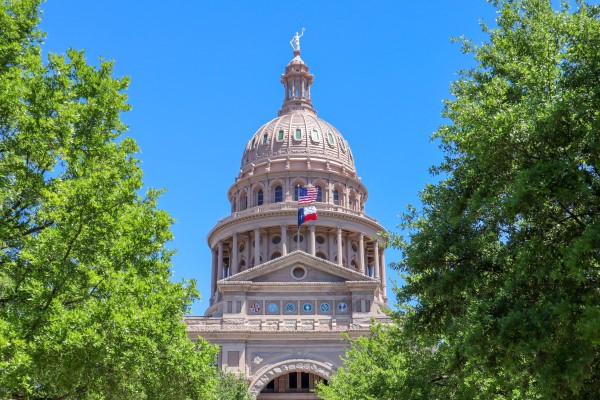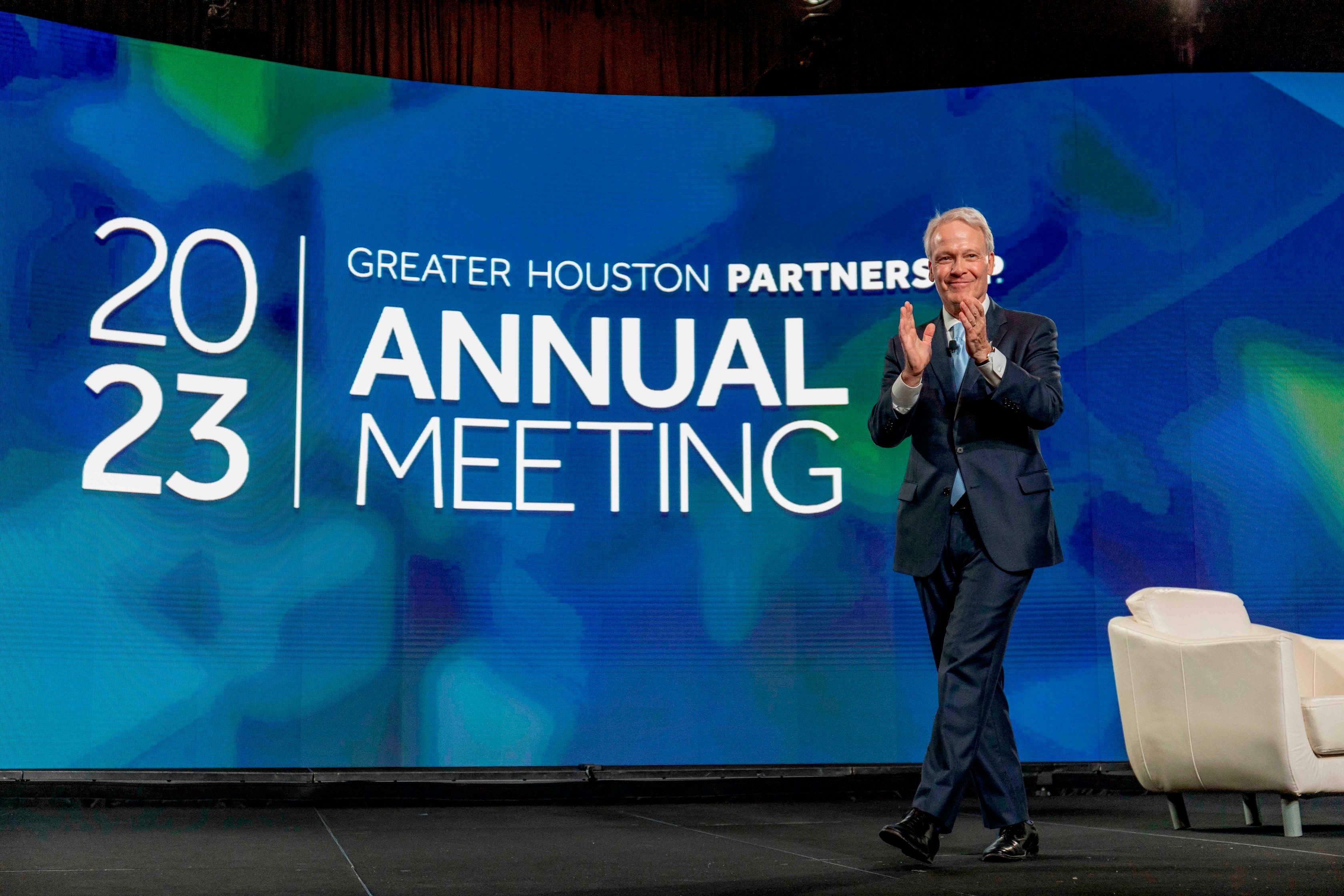HOU in ATX: Legislative Update – Week 4
Published Feb 03, 2023 by Taylor Landin
This week, freezing weather closes the Texas Capitol, the Partnership welcomes new board chair, advocating for ARPA-H in DC, and the Comptroller announces additional federal funding to address broadband needs.
Winter storm closes the Capitol
Severe weather across the state pushed lawmakers to stay home on just the fourth week of the 88th legislative session, as both the House and Senate chambers adjourned until Tuesday, February 7th.
Early in the week, Governor Abbott deployed the State Operations Center , to which 15 state agencies report, in preparation for winter storm Mara. While the power grid performed as expected, freezing temperatures and heavy ice brought down power lines, causing communities across Central and East Texas to lose power.
Annual Meeting: Incoming Chair Marc L. Boom gives address
On Thursday, the Greater Houston Partnership hosted its Annual Meeting. During the meeting, Dr. Marc L. Boom, President and CEO of Houston Methodist and the Partnership’s incoming Board Chair, provided an update of the Partnership’s work and its direction for 2023.
In his speech, Dr. Boom outlined how the business community can play a positive role in finding solutions in today’s increasingly polarized environment. Boom challenged the Houston business community to embrace “AND” solutions to the challenges facing our region.
- Energy Transition: “We’re going to use fossil fuels far into the future AND we need to do so cleanly.”
- Immigration: “We all need more workers AND we all need secure borders which we as a country control.”
- Education: “We have [to have a] public education system focused on meeting the diverse needs of all of Houston’s young people, preparing them for the careers of tomorrow, AND [we have to] also hold school districts accountable for academic performance.”
- North Houston Highway Improvement Project: “The I-45 project [is a great example of] an AND of jobs AND mobility AND safety AND enhancing and protecting surrounding communities.
The bottom line: Boom concluded with: “We need commitment and engagement of a broad, diverse group of business leaders to advance solutions through the fractious debate, singularly focused on Houston’s long-term success and creating opportunity for all Houstonians.”
Go deeper: Watch Dr. Boom’s full Annual Meeting address here.
The bottom line: Boom concluded with: “We need commitment and engagement of a broad, diverse group of business leaders to advance solutions through the fractious debate, singularly focused on Houston’s long-term success and creating opportunity for all Houstonians.”
Go deeper:
Watch Dr. Boom’s full Annual Meeting address here.
Houston Life Sciences Coalition and ARPA-H
Even with the state legislative session underway, the Partnership’s work at the federal level continues.
The Houston Life Sciences Coalition, led by the Texas Medical Center, traveled to Washington this week to advance Houston’s opportunity to be awarded a headquarters location for a new federal agency charged with health innovation. The coalition made the case for Houston in meetings with administration officials and members of Congress.
The big picture: In 2022, Congress formally authorized ARPA-H and provided a $500 million increase for the agency, bringing its total funding to $1.5 billion. The bill also requires that ARPA-H have offices or facilities in not fewer than 3 geographic areas.
- The bottom line: ARPA-H’s mission is to accelerate transformative innovation in biomedical science and medicine, with the goal to maintain the country’s global leadership in science and innovation.
By the numbers: The Texas Medical Center is the largest medical city in the world:
- 60+ best in class academic and clinical partners
- 10 Million annual patient encounters
- 11,000 total patient beds
- 120,000 employees
- $850 million of NIH Funding in 2020
- 2,000+ clinical trials annually
- 225+ active start-up life science companies
What’s next: An announcement of headquarter locations by Secretary of Health and Human Service Xavier Becerra is expected this year.
Broadband gets a boost
Texas Comptroller Glenn Hegar announced his agency will receive $363 million in federal grant dollars from the U.S. Treasury to increase access to affordable, reliable high-speed internet across Texas.
The award will go toward the Bringing Online Opportunities to Texas (BOOT) program, a competitive grant process administered by the Texas Broadband Development Office (BDO). BOOT funding is designed to connect unserved and underserved locations that lack broadband access; a critical need was made apparent and exacerbated by the COVID-19 public health emergency.
Why it matters: The program will fund last mile broadband infrastructure projects and qualified projects that meet a specific criterion. Eligibility will be determined by the Texas Broadband Development map.
The funding, administered through the federal Coronavirus Capital Projects Fund, will bring reliable internet service to about 152,000 locations across the state. By reducing the digital divide and closing the broadband last mile gap, Texans will have better access to remote health care options, as well as educational and employment opportunities.
What's next: The Texas Broadband Development Office will begin accepting applications in spring 2023.
During the 88th Legislative Session, the Greater Houston Partnership will provide a weekly update on newsworthy items from Austin. You can view more policy news and archives of our weekly updates here.
 The Houston Report
The Houston Report





















